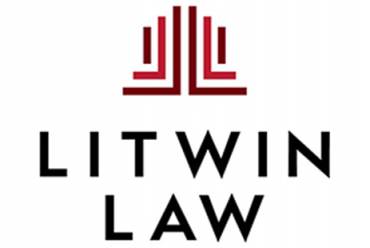Big-Sky Problems in using a Montana LLC to Avoid Georgia’s 7% Tax on Car Purchases
Most people associate the term Big Sky with Montana’s vast landscape and incredible vistas. Some Georgia residents have made Montana more than just a travel destination. They have formed a Montana LLC to avoid the 7% title ad valorem tax fee when buying a luxury car or recreational vehicle.
Under Georgia tax law, a purchaser of a motor vehicle must pay a title ad valorem tax (TAVT) of 7%. The tax rate is imposed on the fair market value of the car (which is typically the purchase price) less the value of the trade-in.
In effect since 2013, and the TAVT replaces the sales tax and the annual ad valorem property tax. Thus, the purchaser does not pay sales tax on the purchase and does not pay an annual property tax on the car’s value.
The TAVT is not deductible, for federal income tax purposes, as a state and local tax (either as a sales tax or as a property tax). Even if the TAVT were deductible, taxpayers who itemize are limited to a state and local tax deduction of $10,000, thanks to the Tax Cut and Jobs Act of 2017. Thus, minimizing state and local taxes is now at the fore of tax planning strategies.
Over the past few years, Georgia residents who buy expensive cars and RVs have formed a Montana LLC to avoid having to pay the 7% TAVT.
Montana LLC as a Vehicle to Avoid the TAVT. Before buying the luxury car or RV, the Georgia resident forms a Montana LLC. The Georgia resident buys the car at a Georgia dealership and in the name of the Montana LLC. The title to the car is placed in the Montana LLC. Montana has no sales tax and no property tax applicable to cars. Thus, other than the costs of forming the Montana LLC and nominal tag costs, the Georgia purchaser incurs no costs. Indeed, feigning assurances of no tax obligations in your home state, the Montana advisors simplify the transaction as follows: “you are a resident of your home state and you use a company car that is owned by a Montana business.” The problem arises at the time of purchase, when the Georgia resident gives the dealership a completed Form ST-8.
Buying a Car using Georgia Form ST-8. Georgia law exempts from the TAVT the purchase of a car that is to be removed from the State of Georgia immediately for transport to another state. For the sale to be exempt, the Georgia purchaser completes and signs a Form ST-8, Affidavit for Out-of-State Delivery. Under penalties of perjury, the purchaser swears that he is immediately transporting the car out of the State of Georgia and to the State of Montana. The dealership/seller takes the signed Form ST-8 in lieu of collecting the 7% TAVT. For a $250,000 car, the purchaser avoids a TAVT of $17,500.
Improper Reliance on the Montana LLC. In many cases, the purchaser of the car does not transport the car from Georgia to Montana. He keeps the car in Georgia, where he lives. Upon receipt of the Montana tag, the Georgia purchaser attaches the Montana tag to the new car. Thus, the Georgia purchaser has misrepresented the facts on the Form ST-8, because the purchaser has not immediately transported the car from the State of Georgia to the State of Montana.
Georgia Department of Revenue’s Warning to Owners of Cars with Montana Tag. In October 2018, the Georgia Department of Revenue addressed using a Montana LLCs to avoid the 7% TAVT. The Department warned Georgia residents who bought a car for use in Georgia but obtained Montana tag to go to the local tag office and get a Georgia tag and title. The Georgia Department of Revenue instructed county tag offices to use the original purchase date of the car and the original price of the car to compute the TAVT. Under the Department’s directive, the purchaser seeking to avoid possible criminal charges had to pay the TAVT that would have been due at the time of purchase. Thus, if a Georgia taxpayer bought the car for $250,000 in 2015, then the local tag office would collect the TAVT based on the $250,000 value, even if the fair market value at the time of registration was less than $250,000. The Department also told the local tag offices to enforce all penalties and collect all interest based on the date that the car should have been registered.
Conclusion. Almost one year has passed since the Georgia Department of Revenue told owners of Montana LLCs to register their cars in Georgia and pay the Georgia TAVT. Georgia residents who did not comply now face the possibility of state tax fraud charges. Therefore, if your client (1) owns a luxury car or RV that still has a Montana tag and (2) used a Montana LLC to avoid the TAVT at the time of purchase, then your client should take steps immediately to protect himself. As noted, almost a year has passed since the Department of Revenue urged purchasers to get a Georgia tag. At this point, the client may be wise to seek counsel and possibly file a voluntary disclosure to avoid the criminal charges.
Litwin Law represents individuals and businesses in state and local tax matters. Litwin Law deals with a variety of issues that arise during audit and during protest and appeal to the Georgia Tax Tribunal and to local governments. If you or your client faces a local business occupation tax issue, and you are unable to resolve the issue, Litwin Law can help.
For over 30 years, and as a recognized Super Lawyer since 2008, Richard Litwin has devoted his practice to multistate tax, state and local tax, and tax controversies. He has chaired the State Bar of Georgia’s Section of Taxation and is highly active on Georgia Department of Revenue committees.
Note: “Pass the SALT” is a blog of The Litwin Law Firm, P.C., d/b/a Litwin Law, and is dedicated to sharing views and ideas on state and local taxation. This document is an overview and summary of state and local tax obligations. This document is not intended to be, nor should be interpreted as, legal advice. For legal advice, the reader should contact an attorney.








